Welcome to our in-depth discussion on "Vaccine-Associated Sarcoma in Cats", an unusual, yet noteworthy health concern for our purring companions. In the world of routine cat vaccinations, there exists an intriguing paradox.
Consider this: A routine vet visit for your cat's vaccination could, in extremely rare cases, lead to the development of a skin tumor known as a sarcoma right at the injection site.
Sounds unbelievable, doesn't it? The mystery deepens when you realize it's not exactly what's in the vaccine, but the act of vaccination itself that can trigger the condition.
Hold on, though, before any alarm bells start ringing. These sarcomas are incredibly rare, only appearing in a small percentage of cats. However, understanding the situation can help us make informed decisions about our pets' health.
In this comprehensive exploration, we'll delve into understanding these sarcomas, tracing their surprising link to vaccinations, and outlining the steps being taken by professionals in response.
Armed with this knowledge, you'll be better equipped to make well-informed decisions concerning your cat's health. Remember, knowledge is power when it comes to protecting our furry friends. Ready to unearth more about this compelling subject? Let's get started.
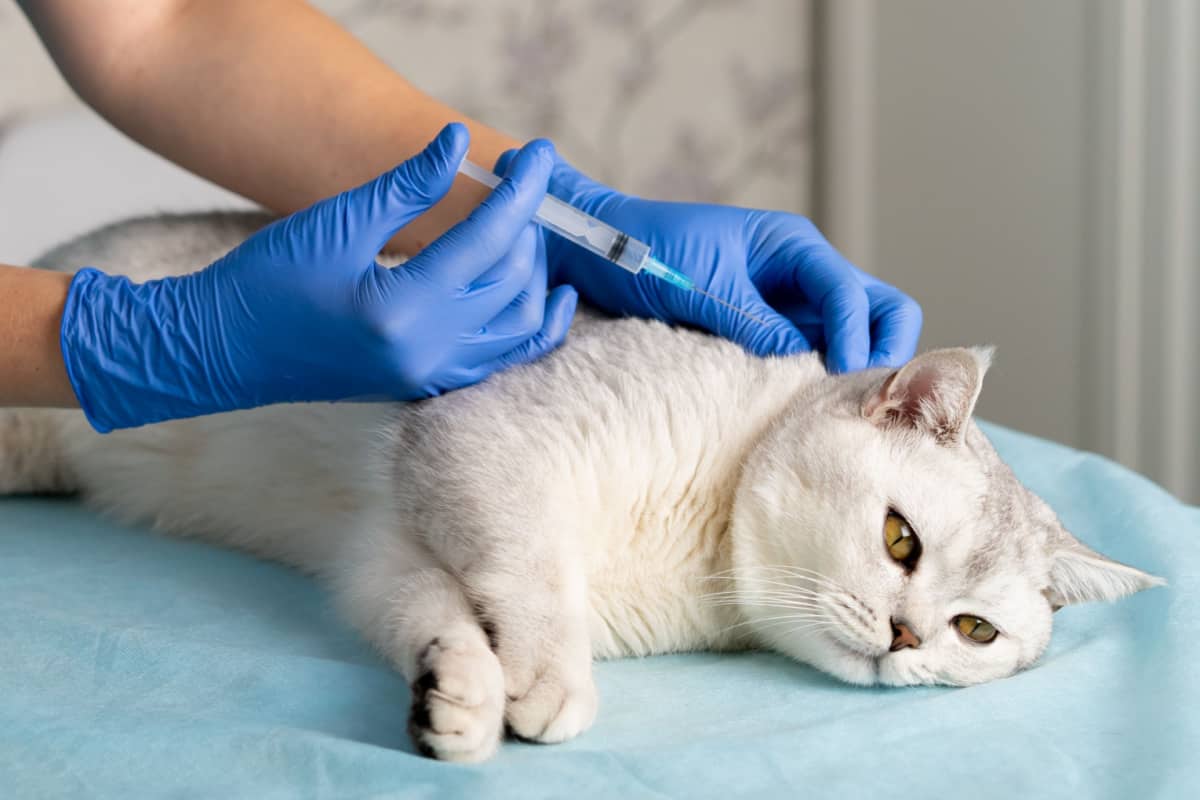
The Unexpected Twist: Vaccination Injections And Sarcomas in Cats
A small fraction of cats (between 1 in 2,000 and 1 in 10,000) can develop a condition called sarcomas. Sarcomas are unfriendly skin tumors and they appear right where they receive their injections.
And the plot twist? It's not so much about what's in the injection, but the act of injecting itself that can be the trigger. But here's the comforting bit. The risk is actually lower than we originally thought.
While these tumors can indeed be aggressive and have a tendency to spread unpredictably, the prognosis isn’t all doom and gloom.
Yes, the situation may sound serious, but remember - our feline friends are often more resilient than we think.
What Is Feline Sarcoma?
Aggressive skin tumors in cats are a form of cancer called "Sarcoma".
Most feline sarcomas are not associated with vaccines in any way. However, those that are associated have both pet owners and veterinarians alike deeply concerned.
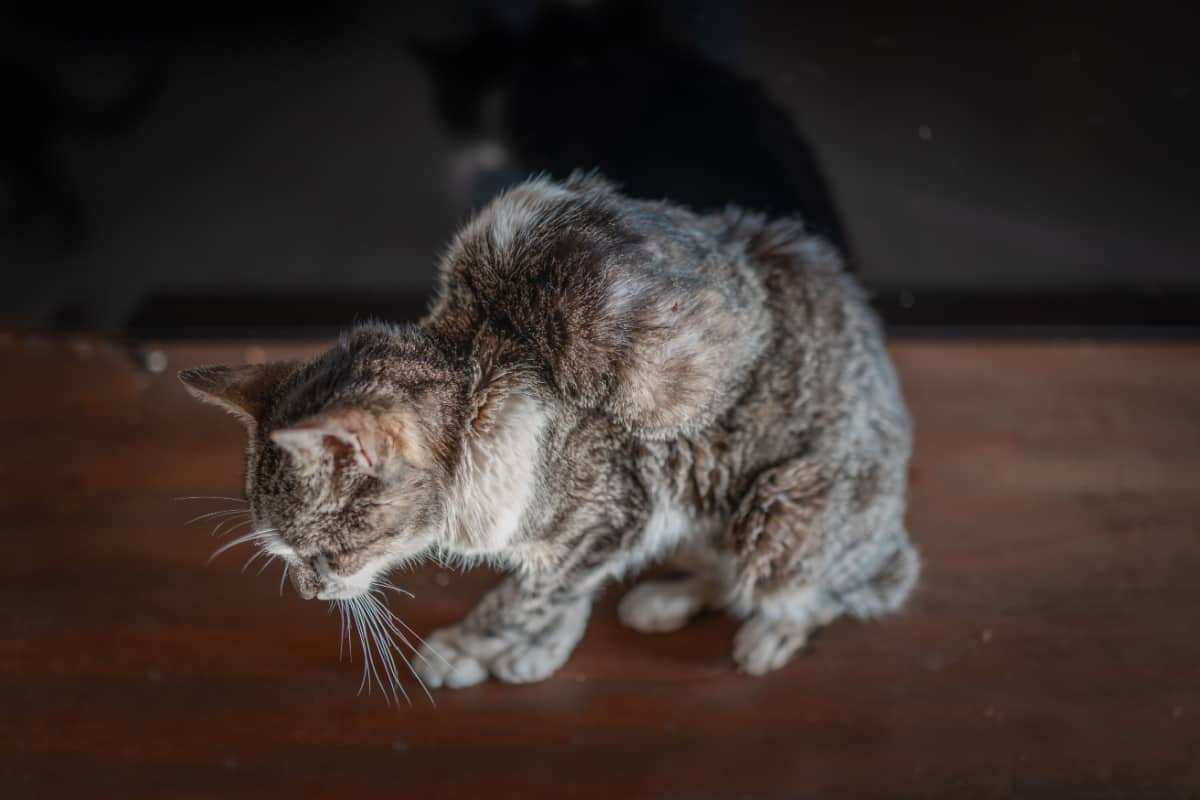
When they occur at a site where vaccines are administered, they are referred to as "Vaccine-Associated Feline Sarcoma".
We have seen these types of tumors infrequently in cats for a long while now. But as recently as 1991, we began to see a much higher incidence of these sarcomas occurring in the very places where vaccines are commonly injected.
The association between vaccine administration and sarcoma development is firmly documented.
The Vaccine-Associated Feline Sarcoma Task Force
Even though vaccine-associated sarcomas are relatively uncommon, national veterinary organizations, as well as feline vaccine manufacturers, felt it was an important enough issue to organize the Vaccine-Associated Feline Sarcoma Task Force.
It is a coalition of Veterinarians, Vaccine Manufacturers, and other Feline Health Care practitioners dedicated to resolving the dilemma.
This task force is devoting considerable human and financial resources to determine the true scope of the problem, the cause, and the most effective treatment of vaccine-associated sarcomas.
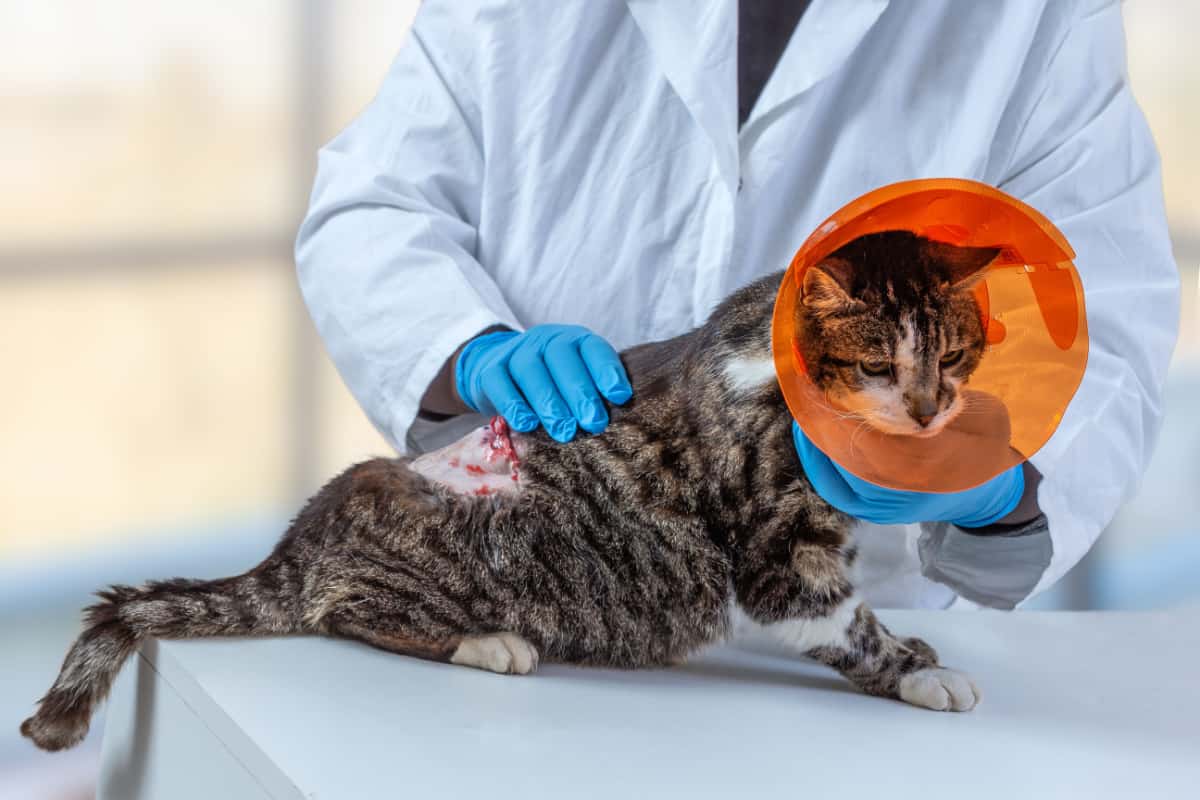
The Potential Risks Of Avoiding Vaccines
As concerning as this issue may be, there is an even greater concern that many cat owners, in an attempt to keep their cats from developing Vaccine-Associated Sarcoma, may choose to stop allowing all vaccinations entirely.
While this response may be well-intentioned, the sad result is that these owners may be placing their cats at a much higher risk of acquiring a fatal infection than any risk the vaccine poses.
In many locations, there are ordinances and other legal requirements regarding compliance with rabies vaccine protocols.
You will need to check with your vet or local officials to see if the Rabies vaccine is required for cats where you live.
SIGN UP FOR THECATSITE'S EMAIL UPDATES >
How To Prevent Vaccine-Associated Sarcoma?
It is up to us to determine what is the best course of action for our pets.
The best suggestion is to learn as much as you can about Vaccine-Associated Sarcoma. Then, discuss the issue at length with your trusted veterinarian. And as a team, reach a treatment plan best suited for you and for your cat.
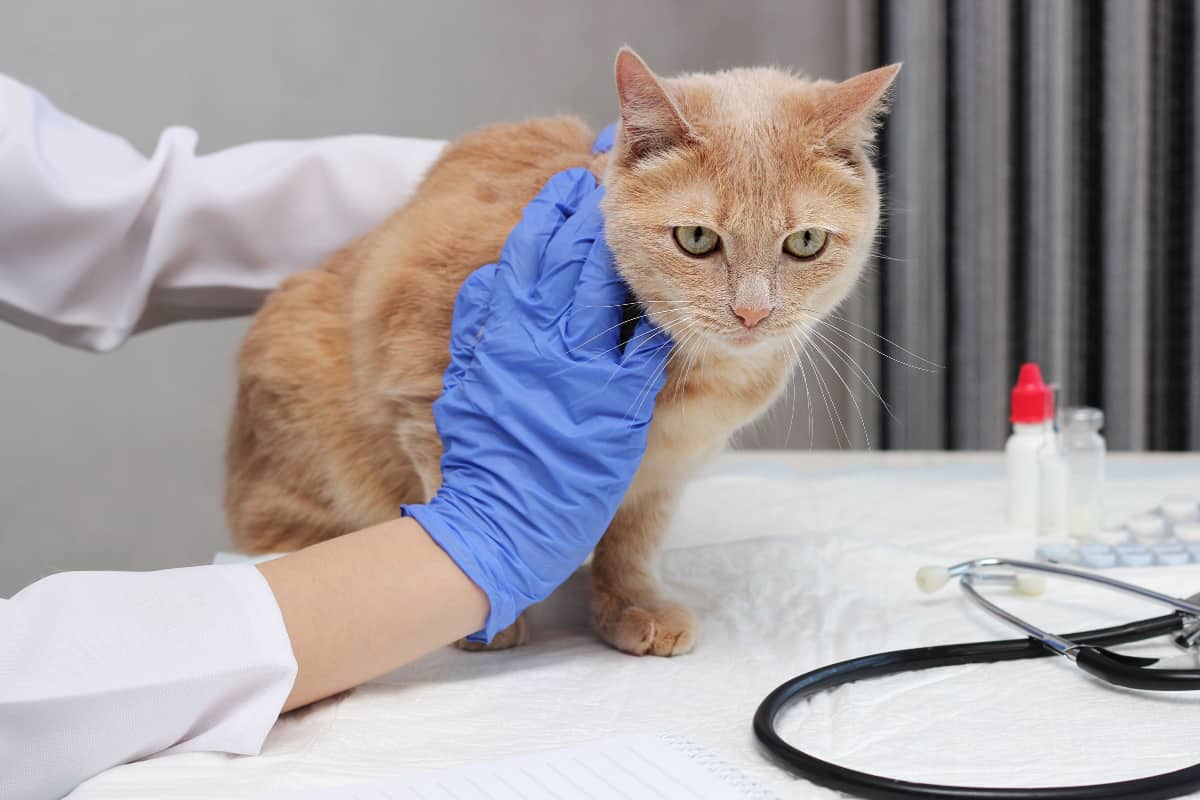
Veterinarians and pet owners are being urged to identify and closely evaluate each individual cat's risk of exposure as a guide in deciding which vaccines should be given.
After considering both the vaccine and your cat's individual circumstances, your veterinarian will assist you in designing a vaccination program that not only protects against infectious diseases but is also as safe for your cat as possible.
Factors To Consider In Choosing The Right Vaccine
The choice of which vaccines your cat should receive can be appropriately made by closely examining the following factors:
1. Evaluate Your Cat's Exposure To Other Cats
Your cat's risk of acquiring common feline infections and viruses is largely dependent on the health/medical history of any other cats to which he/she is exposed.
Advise your vet whether your cat goes outside or has contact with any other animals.
Provide a list of all of your other pets, whether or not their vaccines are up-to-date, and whether or not they have access to the outside or other animals.
2. The Risk An Infected Cat Poses To Human Health
Most of the common feline infectious health problems cannot be transferred to humans. One exception to this is the Rabies Virus, which can be acquired by humans.
3. The Protective Ability Of The Vaccine
Some feline vaccines provide very little if any protection for your pets. Other types of vaccines are not always indicated for indoor-only cats.
4. The Frequency Or Severity Of Reactions The Vaccine Produces
Many feline vaccines may cause reactions ranging from nothing at all to severe and in rare cases, fatal. These reactions should be carefully considered before making the decision to vaccinate.
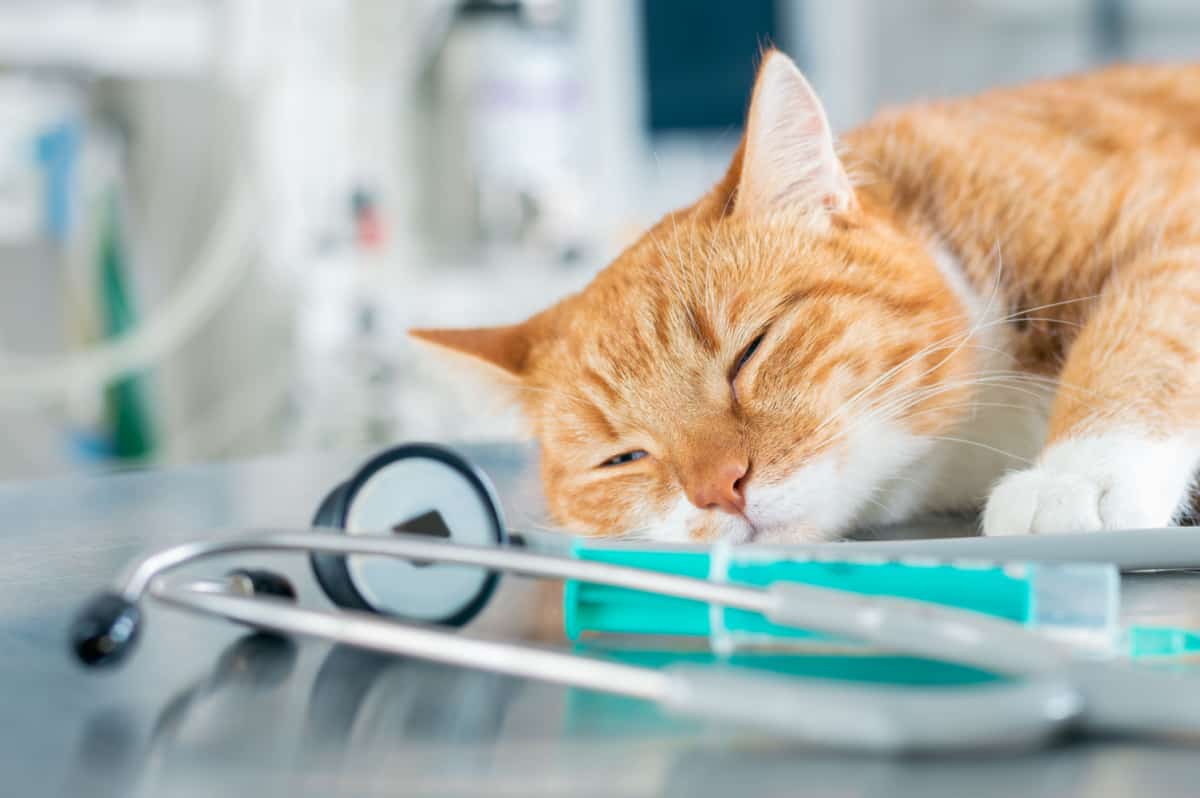
It is normal to observe a slight or mild reaction in otherwise healthy cats after receiving vaccines.
You will need to discuss with your vet at what time would it be considered severe and how to contact someone for help if you need it.
5. The Age & Health Status Of Your Cat
Advise your vet of your cat's age (or closest guess if you don't know for certain) as well as detailed health history.
It is helpful to keep an organized journal of all of your cat's visits to the vet, including an itemized statement of services rendered, and provide that whenever a plan of treatment needs to be discussed.
6. Vaccine Reactions Your Cat May Have Experienced In The Past
It is important to let your vet know if your cat has ever experienced a reaction to a vaccine and the details of that reaction. If the reaction was severe, your vet may decide not to vaccinate at all.
Proper Vaccination Guidelines
It needs to be emphasized that in the vast majority of situations, vaccines are much more beneficial than harmful and they continue to help protect cats from serious infection and disease.
Unless there is a sound medical reason to avoid vaccines, all cats should be correctly assessed for potential risks to common feline infections and viruses and vaccinated accordingly.
It will also help to take note of the following:
- You can minimize the risk of Vaccine-Associated Sarcoma in your own cats by not vaccinating unnecessarily.
- Keep meticulous records of your pet's vaccination schedule, including date, administering Vet's name and current contact info, type/brand of vaccine, the amount administered, and location on the body where administered.
- Do NOT leave your vet's office without such a document in your hand if your cat received ANY injections.
- You should have a detailed, written listing of all injections, not just vaccines.
According to recent research, in cats presenting a genetic predisposition to Vaccine-Associated Sarcoma, tumors have developed in sites where only sterile water or fluids were administered.
Appropriate Vaccines For Your Cat
Once your veterinarian has a clear understanding of your cat’s lifestyle and environmental circumstances, he/she will be better equipped to help guide you in deciding which vaccines are appropriate for your cat.
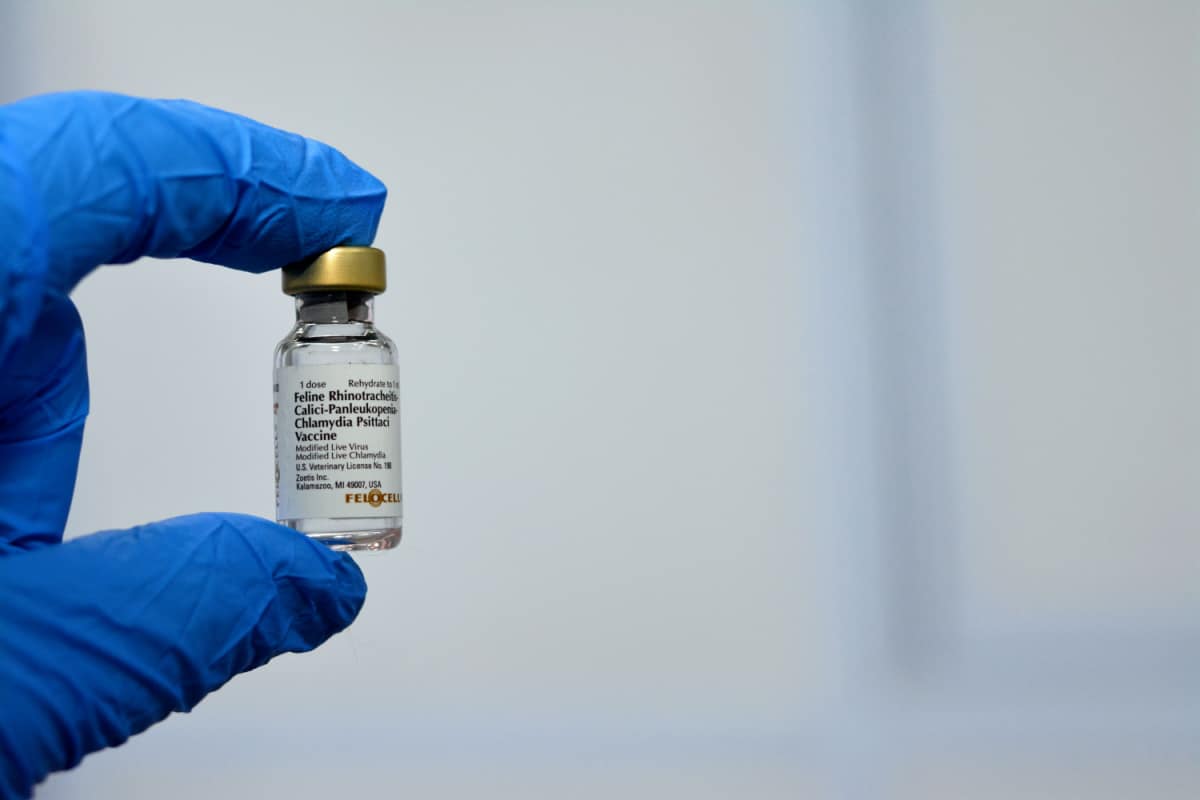
The following vaccines are currently available:
Feline Panleukopenia Virus Vaccine
Feline panleukopenia, also commonly (but inaccurately) known as feline distemper, is a highly contagious and deadly viral disease in cats.
It is extremely hardy, is able to survive extremes of temperature and humidity for many months, and is resistant to most available disinfectants.
Until recent years, panleukopenia was the most serious infectious disease of cats, claiming the lives of thousands every year.
Thanks to the highly effective vaccines currently available, panleukopenia is now considered an uncommon disease.
However, because of the serious nature of the disease and the continued presence of viruses in the environment, vaccination is highly recommended for all cats.
Feline Calicivirus/Herpesvirus/Rhinotracheitis Vaccine
Feline calicivirus and feline herpes virus type I (also referred to as Rhinotracheitis virus) are responsible for 80-90 percent of infectious feline upper respiratory tract diseases.
Most cats are exposed to either or both of these viruses at some time in their lives. Once infected, many cats never completely rid themselves of the virus.
These "carrier" cats either continuously or intermittently shed the organisms for long periods -- perhaps for life -- and serve as a major source of infection to other cats.
The currently available vaccines will minimize the severity of upper respiratory infections, although none will prevent disease in all situations. Vaccination is highly recommended for all cats.
Rabies Virus Vaccine
Rabies is an increasing threat to cats. At the present time, the number of reported feline rabies cases in the United States far exceeds that of all other domestic animals.
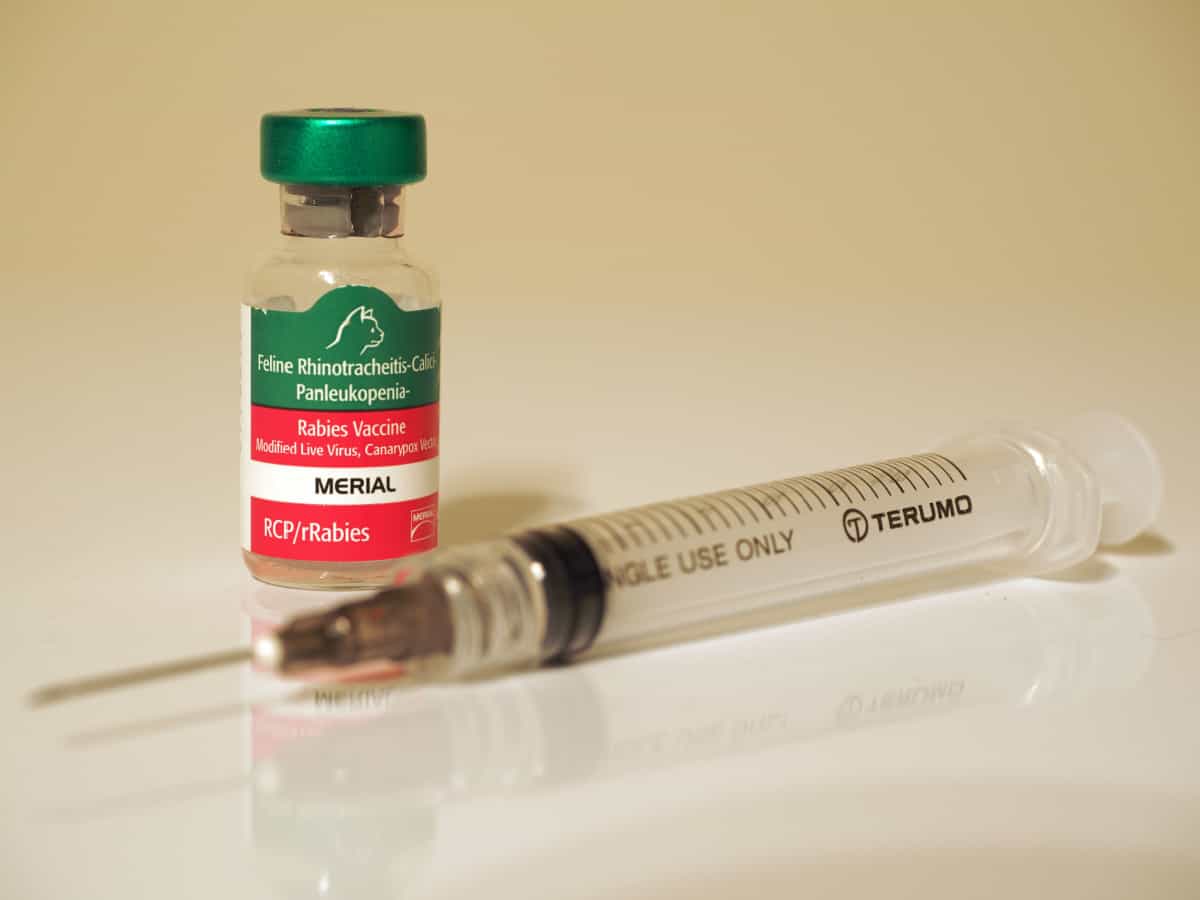
Rabies in cats is also a major public health concern.
Because of the routinely fatal outcome of infection in cats, and the potential for human exposure, rabies vaccination is highly recommended for all cats; it is required by law in most areas of the country.
Feline Leukemia Virus Vaccine
Feline leukemia virus (FeLV) is the leading viral killer of cats. The virus is spread from cat to cat through bite wounds, through casual contact with infected cats, and from an infected mother cat to her kittens.
The individuals most at risk of infection are outdoor cats, indoor/outdoor cats, and cats exposed to such individuals.
Cats living in households with FeLV-infected cats or with cats of unknown infection status are also at risk.
Indoor-only cats with no exposure to potentially infected cats are extremely unlikely to become infected. FeLV vaccines are recommended for all cats at risk of exposure to the virus.
Chlamydia, Feline Infectious Peritonitis, & Ringworm Vaccines
Vaccines are available for each of these disease-causing organisms, but their use is not routinely recommended for all cats.
Your veterinarian will help guide you in deciding whether your cat should receive any of these vaccines.
To Vaccinate Or Not To Vaccinate?
While you are determining whether or not to vaccinate, you will also have to consider how often booster vaccines should be administered.
Certain types of rabies vaccines provide protection for longer than one year.
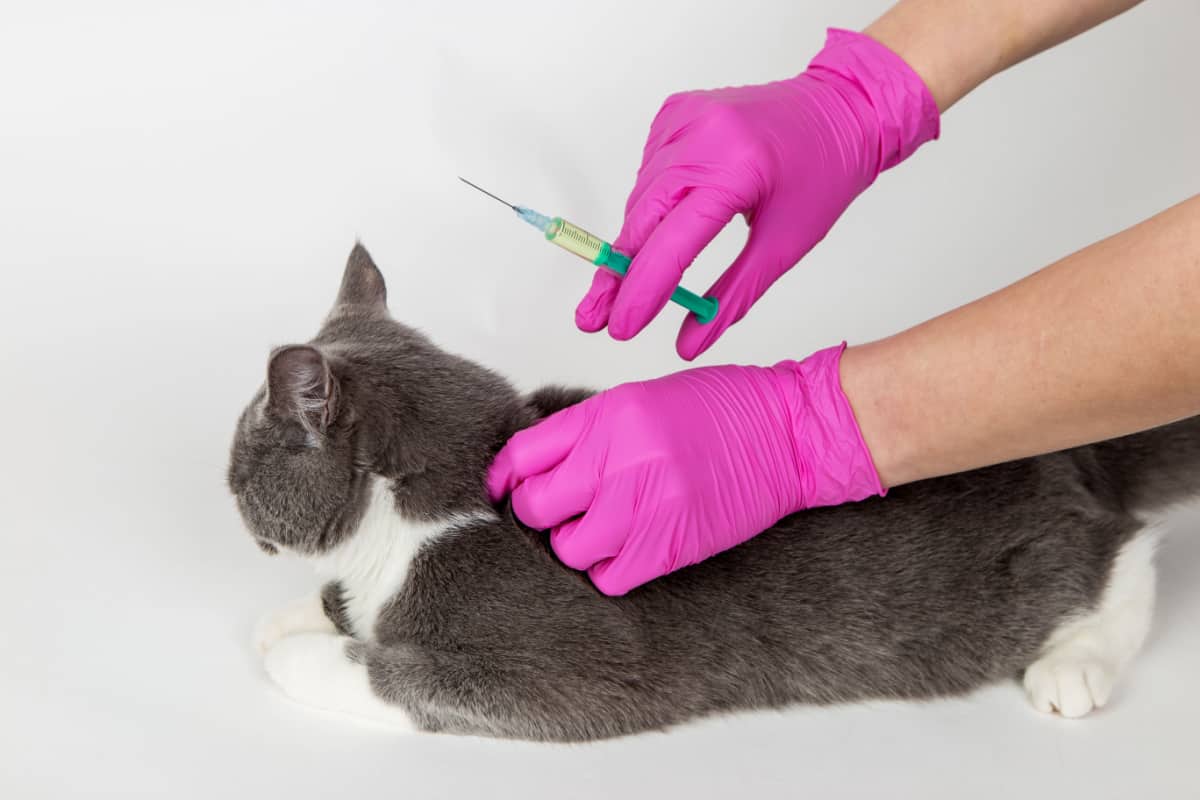
So, vaccination with a triennially approved rabies vaccine every three years (after the initial series is completed, and when consistent with local rabies vaccine requirements) is sufficient when choosing to use those brands.
Recent research has provided evidence to suggest that the panleukopenia, Rhinotracheitis, and calicivirus vaccines provide adequate protection for several years. So in response, many veterinarians are now recommending that this vaccine be boosted at three-year intervals as well.
Unfortunately, far less is known about the duration of protection provided by other vaccines. Until that information is known, annual vaccination with those products is a reasonable course of action.
The decision to vaccinate your cat should be based on a thorough understanding of the benefits as well as the risks of the procedure.
For this reason, it is extremely important that you thoroughly discuss any concerns with your veterinarian.
He or she will be more than willing to answer any questions you may have. They will also help you make the right vaccine choices for your cat.
SIGN UP FOR THECATSITE'S EMAIL UPDATES >
Comments? Leave them using the comment section below. Questions? Please use the cat forums for those!
Pounce on the purr-fect cat health tips with our articles below!
Cat Vaccinations: A Quick & Useful Guide
Eye Problems In Cats: What Every Owner Needs To Know
Note: We may get commissions for purchases made through links on this page.



